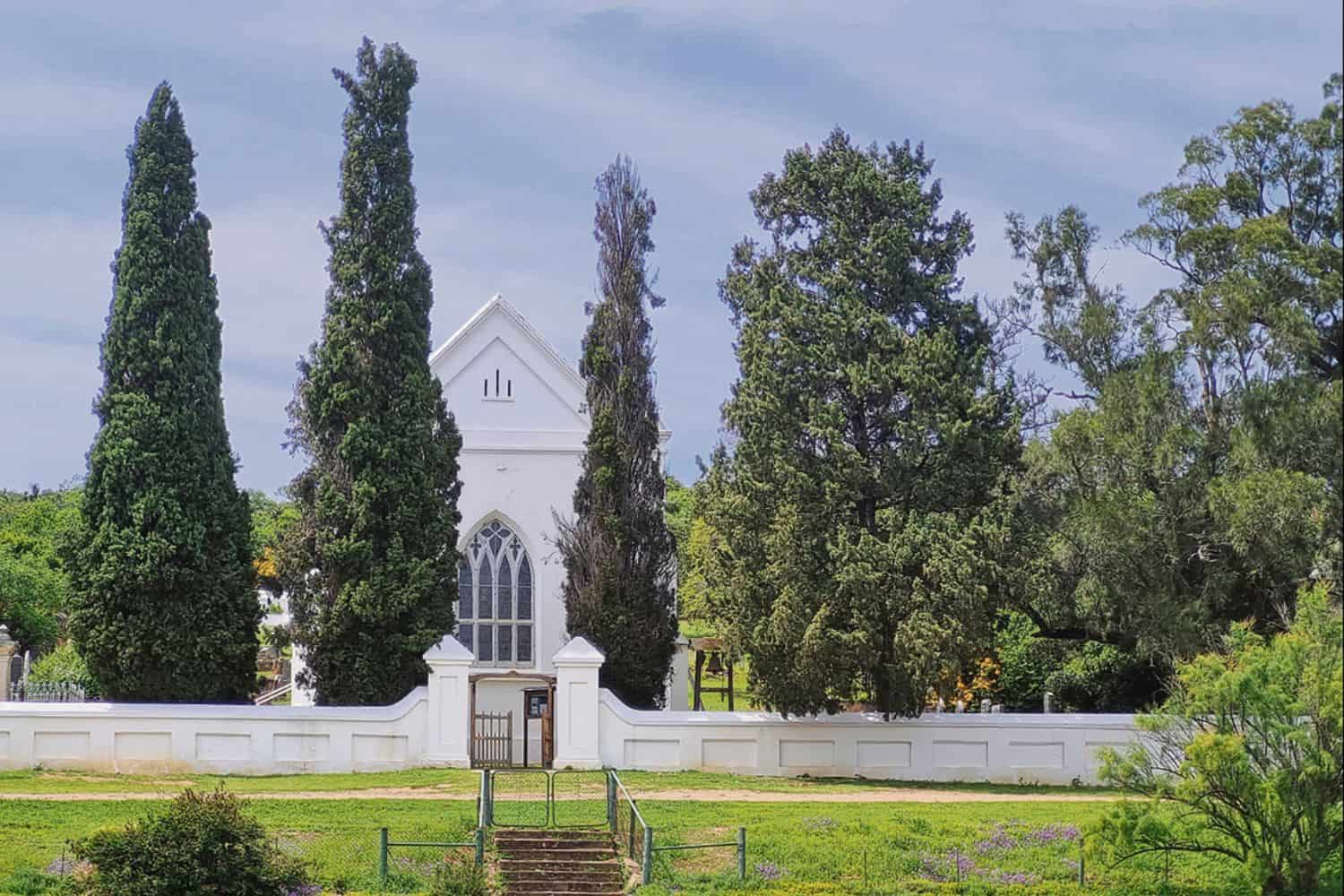One man’s calm saves a village.

Not for the first time in my life, I sat in the Albany Club in Makhanda (Grahamstown) listening to my mate Alan Weyer telling stories of life in Frontier Country – what mere mortals call the country districts of the Eastern Cape – in years gone by.
Alan is a historian and raconteur extraordinaire whose storytelling abilities increase in direct proportion to the number of beers he has quaffed. Believe me, we’d quaffed a few when I brought up the topic of Salem and the settler encampment that was spared “possibly because the isiXhosa army thought the mlungu* were all mad”. Earlier in the day, my friend Peter Voigt and I had wandered through Salem; he for the first time, me for the umpteenth in the space of a dozen years of visiting Kenton-on-Sea and its surrounds.
It doesn’t take long to explore. There wasn’t much going on: the two of us, some painters who’d paused in giving the church a fresh coat of paint to take an early mid-morning break, a groundsman preparing the wicket for Saturday’s cricket match against Port Alfred and an agama lizard catching flies in the cemetery.
“Salem, the name means ‘vale of peace’ or something like that in both Hebrew and Arabic, was built in typically English fashion,” said Alan, “with the church, prep school and cricket field clustered together. “I grew up there in the late sixties and early seventies.

Cricketing legacy and settler families in Salem
“Village life revolved around cricket and it was a source of great pride that, when we were in matric, the first teams of all three major schools in Grahamstown were captained by boys who had been together in Salem as youngsters.”
To be able to even start understanding the Eastern Cape, one needs to be aware of the role “settler” families – even those that landed before 1820 – played in taming the so-called frontier lands. Those families, buried in their generations in the churchyard or heralded for their batting or bowling prowess in the pavilion, live on today. In cricketing terms alone, the names Amm, Emslie and Ford are not only known in the district but throughout the Eastern Cape and, in some cases, across South Africa and abroad.
There’s even an annual six-aside tournament featuring original settler families. This legacy might never have come to being had it not been for a pious pacifist by the name of Richard Gush. Salem was established as a direct result of the arrival of the 1820 Settlers (one of whom, Christopher Wedderburn, is interred in the graveyard). It was proclaimed by Reverend – later Sir William – Shaw who subsequently founded the Methodist Church in South Africa.

“Salem’s church was consecrated in 1834 and often served as refuge for women and children during the various Frontier Wars against the isiXhosa,” Alan recounted to his growing audience.
“Thus, it was when the Sixth Frontier War came around in 1834. The community awoke one morning in January 1835, to find the isiXhosa army encamped atop the hill overlooking the village. Their consternation was nothing compared to the astonishment the isiXhosa chief experienced when an unarmed man – dressed in top hat and tails – rode up and asked what he wanted.”
“‘We are hungry’, was the retort but, actually, he was saying the isiXhosa were fed up with having their traditional farming areas appropriated by the settlers.”
“Is that all? responded Gush.
“With that, Gush returned to Salem and collected bread, tobacco and whatever else was available. He delivered everything to the astounded chief.”
The isiXhosa accepted the peace offering and marched away. Salem was never bothered by tribesmen again. * White people.
NOW READ: Move to ban new hotels in Spain’s San Sebastian due to overtourism
Support Local Journalism
Add The Citizen as a Preferred Source on Google and follow us on Google News to see more of our trusted reporting in Google News and Top Stories.






